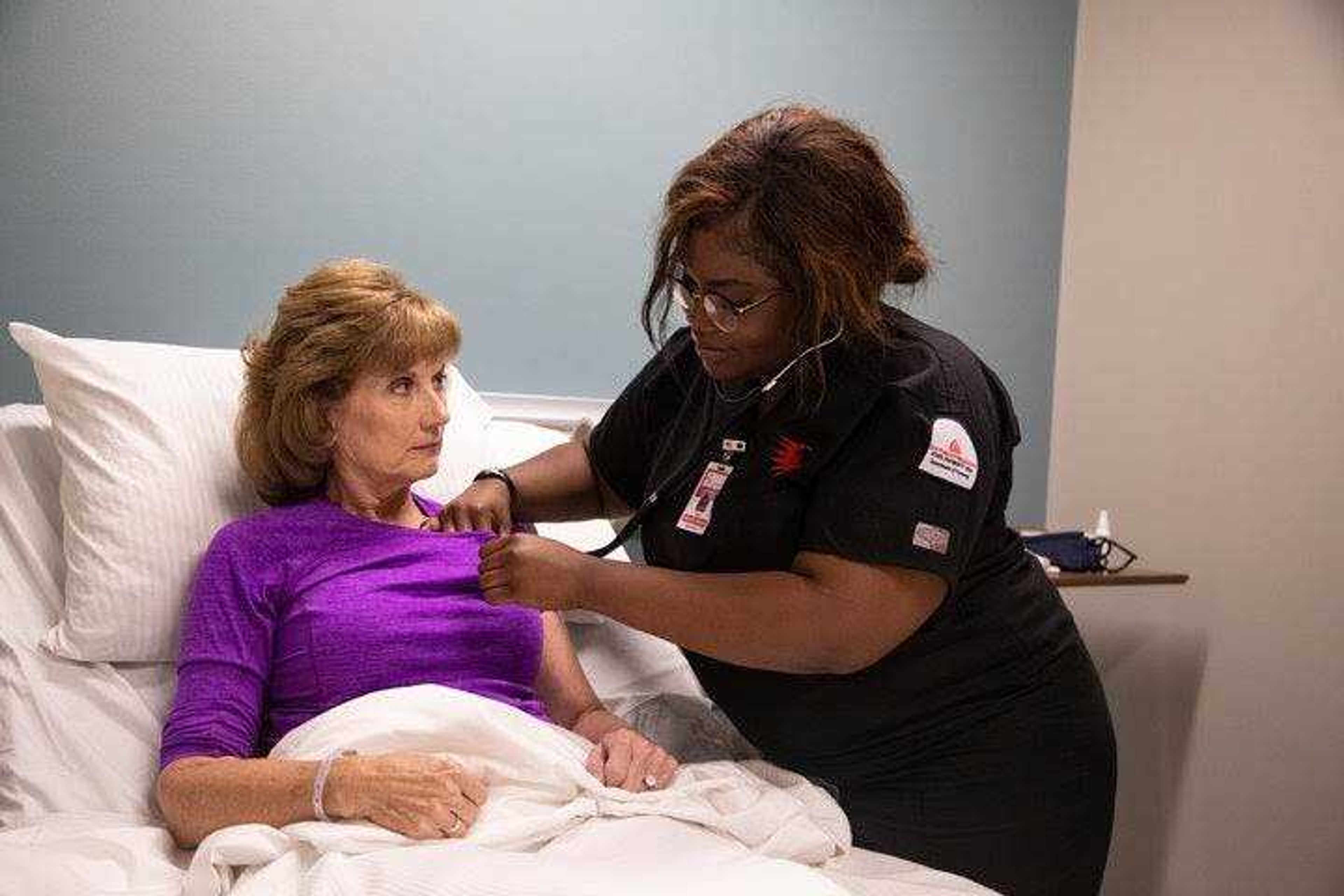Nursing students are facing new challenges with the recent decision to move all university classes online.
Nursing students must complete over 800 clinical hours once they are accepted into the program. They must complete these hours, as well as their normal course-work, in order to graduate.
Approximately 136 nursing students are currently enrolled in clinicals and will have to begin using the online format.
Clinicals require students to go to facilities such as hospitals, nursing homes and mental hospitals to learn how to care for a variety of patients. Now, with classes being online, nursing students are moving to an online version of clinicals.
Chairperson for the nursing program Gloria Green said the decision to move clinicals to an online format was the only feasible option.
“The transition to virtual clinicals was neither legal nor voluntary,” Green said. “As the information about the spread of COVID-19 became evident, the hospitals and other agencies we use for clinical practice began to restrict the number of people who could access their facilities — which was a wise decision. Therefore, the student experiences in those agencies were ended and the transition to virtual clinicals was made.”
Green said the online clinicals will offer a variety of experiences for students, ranging from critical thinking scenarios to taking care of actual patients.
“Some have virtual patients, and the students interact with the situation and then have to respond to the results of their choices; the patients are very sophisticated [and are] 3-D.,” Green said. “Other patients are presented in a case study scenario, and students must respond in live time. Some clinicals are with actual patients but using remote methods, from simple phone calls to FaceTime or Zoom.”
Green also gave an example as to how the virtual patient simulations will work.
“The nurse is assessing a virtual patient, using the virtual stethoscope,” Green said. “She hears abnormal heart sounds. At each...decision point [of the simulation], the student will be given options; if she chooses the wrong option, the effects will be reflected in the patient’s condition, and she will have to make changes in care accordingly. It is called making clinical judgments.”
Green said the online clinicals should not affect nursing students’ success rate and doesn’t break any rules set by the Missouri State Board of Nursing.
“The Missouri State Board of Nursing establishes the rules for schools of nursing,” Green said. “They have reported data that up to 50% of clinical experiences can be simulation without affecting the quality of students’ education or their rate of success on the licensing exam (NCLEX-RN). Since our students complete over 800 clock hours of clinicals in the BSN program, this semester’s switch to virtual simulation experiences for the last seven weeks comes nowhere near that 50% mark.”
Junior nursing student Aaron Newell said he believes learning online will be more difficult than learning in person.
“I feel like I will still learn from a virtual clinical, just not in the same way,” Newell said. “I’m expecting to take from it what I would take from a theory course. It’s just that you can’t simulate authentic patient interaction on a website, and that’s what I feel like I need the most training on.”
He also has concerns about not being able to create effective care plans but is trying to remain optimistic.
“I feel that not completing a care plan will not allow me to dive as deep as I normally would into the details of a patient’s condition [drugs, medical diagnosis, lab results, etc.]. But I can’t really speak about that aspect until I experience the virtual clinical,” Newell said.
However, Newell said he believes a student’s future performance as a nurse will not be affected by these setbacks — as long as they put in the work.
“Overall, I do feel like it has the potential to have a negative impact,” Newell said. “But I feel that this also has a lot to do with what the student does to make up for the lost clinical time, as well. I don’t think it will have an enormous impact on our future practices.”




